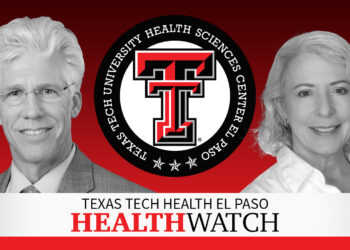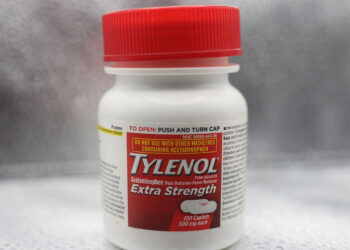With music festivals and concerts drawing crowds across the UK this summer, new data has revealed that more than half of people aged 18-28 — Gen Z — have experienced hearing problems linked to loud music.
A poll of 2000 young adults for the Royal National Institute for Deaf People (RNID) found that 58% of Gen Z respondents reported hearing loss, tinnitus, or both after attending festivals, gigs, or nightclubs. While most symptoms were temporary, the charity warned that repeated exposure could lead to permanent, preventable damage.
One in Three Adults Affected by Hearing Loss
According to the hearing loss charity, these problems currently affect around one in three adults in the UK — about 18 million people — while the British Academy of Audiology (BAA) said that hearing loss is the second most common disability in the UK, albeit an “invisible” one.
Hearing loss has been linked with a range of mental health conditions including an increased risk of dementia and with physical conditions including diabetes, cardiovascular disease, anaemia, chronic kidney disease, rheumatoid arthritis, sleep apnoea, balance problems, and falls.
It also affects employment rates and income. The BAA said hearing loss costs the UK economy £25-30 billion annually in lost productivity and unemployment, in addition to £1 billion spent by the NHS on hearing services.
Unsafe Listening Habits Among Young People
While most hearing loss occurs in people over 60, around 28% are aged between 16 and 60. Some have congenital issues or sequelae of childhood ear infections, but unsafe listening habits are increasingly recognised as a key factor.
Research from the Medical Research Council’s Institute of Hearing Research found that 18.8% of young people are exposed to music at levels harmful to hearing. Up to 80% of nightclub attendees experience temporary tinnitus.
Despite three-quarters of Gen Z respondents being aware of a risk of permanent hearing damage when exposed to noisy venues, 35% said they do not plan to wear hearing protection such as earplugs at live music events this year.
‘We Need to Raise Awareness’
Franki Oliver, audiology manager at RNID, noted that live music events and nightclubs generally now provide free earplugs, while comfortable and reusable earplugs are readily available. “We need to raise awareness of this more among the general public,” he told Medscape News UK.
“There is growing concern that headphone use, both by over-ear headphones and in-ear buds, could risk permanent hearing damage, especially if people aren’t aware of the risks,” Oliver added. He highlighted recent research suggesting that gamers could be at increased risk of hearing loss and tinnitus due to headphone use. Also, people who wear headphones in the presence of background noise, such as during a noisy commute, could be increasing the volume to dangerous levels without realising.
“Experts generally agree that 85 decibels is the level at which hearing damage can start, which is about the same as a food blender,” said Oliver.
Risk of noise induced hearing damage is influenced by duration of exposure as well as intensity. At 85 dB, the ‘safe’ length of exposure is 8 hours over the course of a day, but sound intensity increases logarithmically, so the safe exposure time halves with every 3 dB increase.
“By the time you’ve reached 100 dB — common in live venues and nightclubs, and even on some sections of the underground — the length of time you can be safely exposed is around 15 minutes,” Oliver said.
Changing Habits for Festival Goers
The RNID survey also showed a potential for change among younger adults:
- 28% of respondents said they would protect their hearing if it didn’t affect their enjoyment of music
- 23% would do so if earplugs were more comfortable
- 22% would use protection if free earplugs were available at events
Oliver described these findings as “encouraging.”
The RNID recommends several steps to reduce the risk of hearing damage:
- Use earplugs: Specially designed music earplugs lower volume without distorting sound quality
- Avoid speaker proximity: Position yourself away from speakers at gigs or clubs
- Take breaks: For every hour of sound, rest your ears for at least 5 minutes
- Lower headphone volume: Keep it below 60%, especially in noisy settings
- Consider noise-cancelling headphones: These reduce the need to turn up the volume
Oliver said that GPs could play a greater role in prevention. “GPs could provide invaluable support in raising awareness of hearing protection through surgery posters or when talking to patients, especially those who are concerned about their hearing or tinnitus,” he said.
Dr Sheena Meredith is an established medical writer, editor, and consultant in healthcare communications, with extensive experience writing for medical professionals and the general public. She is qualified in medicine and in law and medical ethics.
Source link : https://www.medscape.com/viewarticle/over-half-gen-z-report-music-linked-hearing-issues-2025a1000ks0?src=rss
Author :
Publish date : 2025-08-05 14:42:00
Copyright for syndicated content belongs to the linked Source.














